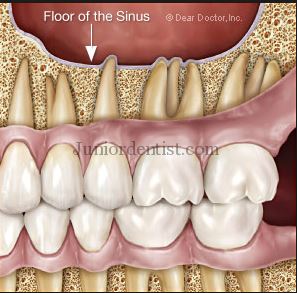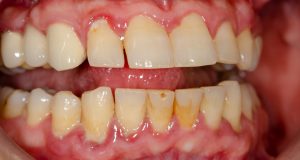Cold and flu season is in full swing in Kamloops. Many of us have experienced sleepless nights with a cough that won’t stop, a stuffy head that makes breathing impossible, and a runny nose that has us constantly reaching for tissues. We are all aware of how the common cold and flu can wreak havoc on the body, but did you know how these bugs affect your oral health? Read on to learn how to deal with these issues and protect your teeth.
Nasal Congestion and Dry Mouth
The cold and flu bugs have taken up residence in your sinuses, so when you finally lay down to rest, you’re too stuffed up to breathe through your nose. Instead, you have to breathe through your mouth, leaving you feeling parched all night. Cold and flu symptoms are a major cause of dry mouth, but medications such as decongestants may make it worse. And when the mouth is dry, bacteria grow faster, increasing your risk of gingivitis and tooth decay.
To combat dry mouth during a cold or flu, continue using decongestants as indicated, they will help in the long run. But make sure you stay hydrated by drinking plenty of water. Humidifiers are also crucial, especially in a dry climate like Kamloops. They add moisture to the air and help soothe dry tissues.
When cold and flu symptoms start, I also recommend using a nasal rinse such as the NeilMed Sinus Rinse products available at any drugstore. Make sure you use previously-boiled or distilled water with the saline packets. Nasal rinsing significantly reduces congestion, as well as post-nasal drip which often causes sore throats.
Sinus Pain and Toothaches

Don’t be fooled, cold and flu symptoms often mimic tooth pain! The telltale sign is when the pain isn’t limited to just one tooth. Other symptoms include pain and pressure around the face and eyes and nasal congestion. Acute sinus infections often resolve on their own, but sometimes require antibiotics. Please keep in mind, your dentist isn’t able to prescribe those antibiotics as the infection isn’t tooth-related, so speak to your family doctor.
Keep on Top of Your Oral Hygiene
 Although you might not feel up to it when sick, keep up with your oral care. Allowing plaque to build-up not only puts you at risk for gingivitis and tooth decay, but also encourages bacterial growth. This means a slower recovery from the cold and flu because your immune system is dealing with your mouth instead of fighting the cold or flu. Stick with your regular brushing and flossing routine. And if you really don’t have the energy, try a soothing mouth rinse.
Although you might not feel up to it when sick, keep up with your oral care. Allowing plaque to build-up not only puts you at risk for gingivitis and tooth decay, but also encourages bacterial growth. This means a slower recovery from the cold and flu because your immune system is dealing with your mouth instead of fighting the cold or flu. Stick with your regular brushing and flossing routine. And if you really don’t have the energy, try a soothing mouth rinse.
Our team at Horizon Dental would be happy to help you achieve optimal oral health and we are happily accepting new patients. You can contact us by clicking here or visit our Facebook and Instagram pages for updates and fun contests.